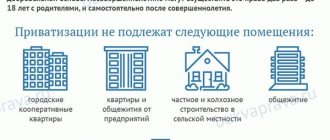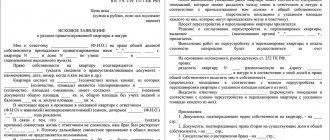Many people living in municipal or state apartments were in a hurry to privatize their housing. The process was initially said to be free only until 2013. Then it was extended, and then the project underwent significant changes. What documents are needed to privatize an apartment in 2021, where to go, what to do first - the innovation affects all stages.
State project and its features
Privatization is the process of transferring state property: apartments, rooms, land, non-residential buildings into private ownership.
The main thing that privatization of an apartment means is obtaining full rights to manage housing. Sell, give, exchange, pledge or inherit. You can use non-privatized housing, but do not conduct legal transactions with its participation. This imposes serious restrictions.
The basis for privatization is the concluded social rental agreement. During Soviet times, such an agreement was concluded with almost everyone who received new housing. Now it is being signed with the poor and those standing in line to receive space.
Who has the right to privatize an apartment:
- Citizens of the Russian Federation living under a social tenancy agreement.
- Those who have not previously used this right.
- Children - under 18 years of age, a child can be removed from the list of participants only with permission from the guardianship authorities.
There are also exceptions to privatizing an apartment. According to the law, it is impossible to transfer emergency housing located in a hostel or a closed military town into ownership.
What you need to know
The privatization process has been going on in Russia since 1991. It took place free of charge. The framework for the existence of the project was established, but it was constantly postponed. In 2021, a new federal law was signed, establishing a new deadline until which year the privatization of apartments was extended. It was declared indefinite. The new housing code abolished all restrictions.
However, the rule remains the same that housing can only be privatized once. Not counting the cases if you became a participant in the process before reaching adulthood or were excluded from the list of participants.
After privatization in Rosreestr and receipt of supporting documents, a person receives full right to own and sell an apartment. He can immediately rent out, bequeath the property - do with it everything that the civil code allows. The main condition is to have proof of ownership in hand.
About registration
In order to transfer property rights from government bodies to Russian citizens, it is necessary to perform a certain number of actions.
According to Federal Law No. 1541-1, the general conditions of the procedure include several stages, namely:
- Collection of the necessary documentation that is required for the purpose of verification by the authorized government agency regarding the disposal of property.
- Next, you should draw up technical documents for the property.
- At the next stage, it is necessary to draw up an application regarding the transfer of real estate ownership.
- Within a standard 2 months, the information provided is verified and an agreement is drawn up regarding the transfer of ownership of the property.
- At the final stage, it is necessary to draw up a contract for ownership in Rosreestr.
A sample application for privatization of an apartment is here,
A sample privatization agreement is here.
If the period for consideration of an application for the privatization procedure is provided for by Russian legislation and must be strictly observed by municipal authorities, then the period for collecting documentation at the preparation stage may be delayed.
This is due to the need to prepare a huge number of certificates, including from other cities and regions, if there has been a frequent change of residence.
Urgent privatization of an apartment is often explained by the desire of citizens to dispose of real estate at their own discretion:
- sell;
- present;
- take it to the arena and so on.
Also, the accelerated procedure is explained by the lack of desire in the long process.
Is it worth it to privatize an apartment: pros and cons
The most important advantage is obtaining ownership rights. It allows you to manage your housing. Can:
- Register. In a non-privatized one, other residents can be registered only with written confirmation from the residents and if the condition is satisfied that each person has no less than the minimum area established in the region. In a privatized one - anyone and in any quantity.
- Sell, rent, remodel, exchange, donate. If a person does not use non-privatized space, he may be evicted.
- Leave as a legacy. Both to direct heirs and by will. It is not necessary to leave housing to someone who is registered or is a close relative. Non-privatized living space is not transferred after death. Only registered family members and children retain the right to live there. Although they can prove their rights if the process was started but not completed before the death of the relative.
For rented housing, a person, together with utilities, pays for use. Therefore, savings are another important argument in favor of what privatization of an apartment provides.
However, among the disadvantages is the need to pay for maintenance. Repairs, garbage removal, etc. – expense items vary. Housing can be collected (as part of enforcement proceedings if the conditions are met) or seized for municipal needs (with compensation provided in the form of a monetary benefit or new housing).
Cost of housing privatization
In order to privatize your apartment, you need to prepare documents for submission to the BTI at the first stage of privatization.
Prepare for the fact that you will have to spend a lot of time and effort collecting a package of documents. In addition, for the preparation of most certificates and extracts, you must pay a state fee and other fees. Additional documents may also be required. And the shelf life of certificates is on average two weeks, so future owners who decide to deal with the procedure themselves will have to do everything in a short time. Read full information about free privatization here.
Many citizens are concerned about the question: how much does paid privatization cost? Until March 1, 2021, this procedure remains free; no one can say for sure how the cost of privatization will be calculated in the future. There is an assumption that the apartment will have to be purchased from the state at the cadastral value.
An equally popular question: is it possible to privatize an apartment with rent arrears? Read about it in our article.
Step-by-step instructions for privatizing an apartment in 2021
The very first step is collecting documents. Some of them may not be on hand, then you will need to contact the right authority. The MFC acts as a universal place where you can obtain duplicates and submit them for registration.
What documents are needed to privatize an apartment in 2021:
- Application – filled out when contacting government agencies.
- Written confirmation of participation or refusal of each family member.
- Residents' passports.
- Technical passport and floor plan - provided by BTI.
- Social tenancy agreement – MFC archive issues a duplicate if lost.
- An extract from the house register is issued by the management company.
- Extract from personal account listing residents.
The list of documents for privatization of an apartment varies by region and depends on the situation. For example, a decision from the guardianship authorities may be required.
Each document is valid for a certain period. A registration certificate is issued for an indefinite period, an extract from a personal account is issued only for a month.
Methods for accelerated privatization
There are two main methods of accelerated privatization. And both involve turning to specialized private companies that supposedly “have everything covered.” Simply put, there are agreements on the privatization of an apartment in the MFC (My Documents) and/or the administration of the locality.
Help in collecting documents
The easiest option (and cheaper) is to contact a private company that will help with collecting the documents necessary for privatization. In principle, there is nothing complicated in this procedure, but due to the fact that you need to contact different organizations and stand in queues, a lot of time is spent on this. Among other things, it takes quite a long time to get a registration certificate for an apartment, if it doesn’t exist yet (often more than a month).
The company, provided that it works honestly, usually has connections in all the necessary offices and in one way or another can speed up the procedure. Well, employees of such a company do not stand in queues, negotiating the issuance of documents in a different way. The client doesn’t need to know how it’s all implemented. The result is important: you can pick up a completely finished package of documents in just a few days.
Assistance in privatization
The second option involves the so-called “turnkey privatization”. Simply put, the applicant leaves a power of attorney for privatization, indicating in it a representative of the company. This person already deals with all the issues independently and ultimately provides an already signed privatization agreement. With it, you can safely go to Rosreestr and register ownership (or even entrust this procedure to the same representative).
As in the previous case, the company has its own connections and contacts in the right places, which allows you to “ask” to review and sign the necessary papers without queues and unnecessary red tape.
Procedure
The general algorithm of actions is the same, although depending on the region there may be specific features. The privatization of the apartment takes place in stages:
- Prepare documents and submit them to the responsible authority directly or through the MFC. Together with them, you must write an application for transfer of housing. According to the rules of the apartment privatization procedure, you receive a document confirming acceptance and the deadline for consideration of the case. In large regions, the application can be submitted online through State Services. Then an electronic notification confirms receipt of the application.
- Based on the results of checking the documents, you will either receive a refusal if there are grounds, or you will be provided with a contract for the transfer of real estate ownership. Each participant in the process must be present at the signing. The contract is studied and signed only in the presence of a responsible employee.
- The next step is to obtain confirmation of the transfer of ownership into private hands. The agreement should be sent to Rosreestr. To do this, you can transfer them to the MFC or directly through Rosreestr. After review and official registration, a signed contract and an extract from the Unified State Register are issued.
Question answer
In the process of how to privatize an apartment, there are a few more nuances that are worth knowing.
1. How can children sign the contract?
Children under 14 years of age are signed for by their representatives. From 14 to 18 they can already sign on their own, but under the supervision of representatives.
2. Where to start privatizing an apartment in 2021 and where to go?
The name of the responsible body may differ in different areas. The correct name is contained on the official website of the city or on the administration website. As a rule, this is a department or committee of property relations. Now, due to accessibility and simplicity, the most convenient option for many is the Multifunctional Center.
3. How long does it take to privatize an apartment?
Preliminary collection of papers takes up to 2 months. The document review stage takes the most time. He shouldn't have two months. The period also depends on where you submitted the agreement for re-registration. When submitted directly to Rosreestr, it is considered for 10 days, when submitted to the MFC – 14 days.
The total time is 3-5 months.
4. Cost of privatization of an apartment in 2021
The process itself is free, but you must pay a fee. It is 2,000 rubles and is paid not for each person, but for all housing. If 4 people participate, each will have to pay only 500 rubles.
5. What document is issued when privatizing an apartment?
As a result, you receive a privatization certificate, which indicates information about the owners, characteristics of the object, type of ownership and the basis of this right (inheritance, purchase and sale, etc.).
Where to get a certificate of privatization of an apartment - at the registration authority. It is enough to contact any convenient branch of Rosreestr.
6. Why did I get rejected?
There may be several reasons:
- Incomplete list of documents for privatization of an apartment.
- The differences are in the papers.
- The participant has already been involved in the transfer of rights.
- Minor children are not registered or there is no approval from the guardianship authorities.
- Housing does not meet requirements.
To privatize an apartment, you need to correct the grounds for refusal and resubmit the documents. If the property does not meet the conditions, then all that remains is to wait until it begins to comply (relocation from a dilapidated building).
In 2021, there were a number of changes to the legislation on privatization:
- a new authorized federal executive body for legal regulation has been identified;
- additional requirements for privatization planning have been established;
- the procedure for reporting on the results of privatization has been clarified.
In our article we will dwell in more detail on these innovations and bills on amendments to Law No. 178-FZ , which relate to:
- privatization of property without inclusion in the privatization program;
- selling property at auction to a single participant;
- cancellation of the submission of financial statements by enterprises and business companies to the authorities authorized in the field of privatization;
- participation of socially oriented non-profit organizations in the privatization of leased state or municipal real estate;
- privatization of gas networks.
- ACCEPTED CHANGES
1.1. Legal regulation in the field of privatization
From April 24, 2020, the Ministry of Finance of the Russian Federation (hereinafter referred to as the Ministry of Finance of Russia) carries out the functions of developing state policy and legal regulation in the field of privatization of state and municipal property. The Regulations on the Ministry of Finance of Russia supplemented with this authority the Decree of the Government of the Russian Federation dated April 12, 2020 No. 491 “On introducing amendments to certain acts of the Government of the Russian Federation and declaring as invalid certain acts of the Government of the Russian Federation and certain provisions of certain acts of the Government of the Russian Federation.”
As of August 12, 2020, the Rules for preparing and making decisions on the conditions for the privatization of federal property have been changed. The changes were made by Decree of the Government of the Russian Federation dated July 29, 2020 No. 1133 “On amendments to certain acts of the Government of the Russian Federation and the recognition as invalid of certain provisions of certain acts of the Government of the Russian Federation.”
Now the Ministry of Finance of the Russian Federation is authorized to submit to the Government of the Russian Federation:
- draft decisions on the conditions of privatization and the establishment of encumbrances on federal property;
- proposals to cancel or change decisions of the Government of the Russian Federation on the conditions for privatization of property.
Prior to this, these powers belonged to the Russian Ministry of Economic Development.
1.2. Privatization planning and reporting on its results
As of August 11, 2020, the requirements for planning privatization programs and providing information on the results of their implementation have changed. By virtue of Federal Law No. 293-FZ dated July 31, 2020 “On Amendments to the Federal Law “On the Privatization of State and Municipal Property,” constituent entities of the Russian Federation and municipalities are obliged to:
- determine the procedure for planning the privatization of property in accordance with the procedure for developing programs for the privatization of state and municipal property;
- prepare annual information on the results of property privatization using uniform forms.
The specified procedure and forms have not yet been approved by the Government of the Russian Federation, however, back in 2021, the Ministry of Economic Development of Russia prepared a corresponding draft resolution of the Government of the Russian Federation, according to which the rules for the development of property privatization programs contain the following provisions:
- the privatization program is formed for a period of 1 to 3 years;
- develops and approves the privatization program by the Government of the Russian Federation, government bodies of the constituent entities of the Russian Federation, local government bodies;
- the privatization program must be approved no later than 10 working days before the start of the planning period;
- the privatization program is published on the Internet within 15 working days from the date of approval;
- the privatization program must contain information about property and planned income;
- property included in the privatization program is grouped by economic sectors (areas of management);
- uniform forms of reports on the results of privatization are approved.
After the Government of the Russian Federation approves the rules for the development of privatization programs, regional authorities and local governments will need to adjust the legal acts that define the procedure for planning the privatization of property.
- BILLS
In order to improve the privatization processes and eliminate gaps in legislation in the period 2021-2021, the Russian Ministry of Finance and individual federal executive authorities have prepared a number of bills providing for amendments to Law No. 178-FZ.
2.1. Privatization without including property in the privatization program and sale of property to a single bidder
The Ministry of Finance of Russia has developed and submitted for discussion a draft federal law “On Amendments to the Federal Law “On the Privatization of State and Municipal Property”, aimed at accelerating the rate of involvement in economic circulation of federal property that is not required by the state for the performance of functions and does not generate income. The bill was developed in pursuance of the order of the Government of the Russian Federation dated July 8, 2020 No. MM-P13-7425.
The bill provides two relaxations in order to reduce the time frame for selling property:
- It is planned to allow the privatization of the following federal property without inclusion in the privatization program:
- movable property;
- real estate, both cadastral and book value of which do not exceed 100 million rubles. If an object does not have a cadastral value, only the book value is taken into account. If a property is alienated along with a land plot, then the cadastral value of the plot is also taken into account.
The list of property that can be privatized without inclusion in the privatization program will be compiled and approved by the Federal Property Management Agency (hereinafter referred to as the List). The same department is obliged to publish the List on the website https://torgi.gov.ru. Changes to the List can only be made in agreement with the Ministry of Finance of Russia and the Federal Antimonopoly Service of Russia. The rules for compiling the List will be determined by the Government of the Russian Federation. At the same time, shares and shares in the authorized capital of business companies must be included in the privatization program, as before.
- It is planned to allow the conclusion of purchase and sale agreements for federal property with a single participant in an auction or sale by public offer.
The rule applies only when privatizing property included in the List compiled by the Federal Property Management Agency. The sale price will be the initial price, or the offer price established at the corresponding “downward step”. The proposed changes are aimed at reducing the time of sale, reducing the costs of re-evaluation, maintenance and safety of the privatized property.
Let us recall that the current version of Law No. 178-FZ establishes a ban on concluding a contract for the sale and purchase of property if only one participant took part in the auction. In this case, the auction is declared invalid and the sale must be carried out again.
2.2. Cancellation of the submission of financial statements by enterprises and business companies to the authorities authorized in the field of privatization
The Russian Ministry of Finance has developed and submitted for discussion a bill “On amendments to certain legislative acts of the Russian Federation (regarding the abolition of the obligation to submit annual accounting (financial) statements to government bodies).” The draft federal law was prepared in pursuance of the order of the Government of the Russian Federation dated December 21, 2019 No. SA-P13-11206 in order to simplify the requirements for organizations to submit reports to government bodies, to complete the implementation of the “one-stop shop” concept for submitting such reports.
It is proposed to cancel the obligation of business companies and enterprises included in the privatization program to provide accounting (financial) statements to government bodies authorized in the field of privatization. This right will be enjoyed by organizations that provide reporting to the state information resource for accounting (financial) reporting (hereinafter referred to as GIRBO) in accordance with Article 18 of the Federal Law of December 6, 2011 No. 402-FZ “On Accounting”.
Let us remind you that from 01/01/2020 the Federal Tax Service of Russia began to form and maintain the GIRBO. The information contained in GIRBO is open and publicly available. State bodies, local governments, and the Central Bank of the Russian Federation receive information from the resource free of charge.
Thus, government bodies authorized in the field of privatization will be able to receive accounting (financial) statements of organizations directly from GIBO.
2.3. Participation of socially oriented non-profit organizations in privatization
The Upper House of the Parliament of the Russian Federation developed and submitted to the State Duma a draft law “On amendments to Article 31.1 of the Federal Law “On Non-Profit Organizations” and Article 3 of the Federal Law “On the Privatization of State and Municipal Property” in terms of providing property support to socially oriented non-profit organizations.” .
The bill plans to provide socially oriented non-profit organizations (hereinafter referred to as the Organizations) with a preferential right to purchase leased state or municipal real estate. The specifics of the participation of Organizations in the acquisition of leased property will be established by Federal Law No. 7-FZ of January 12, 1996 “On Non-Profit Organizations”.
Property can be purchased by Organizations without bidding while simultaneously meeting the conditions specified in Figure 1:
Figure 1 — Conditions for purchasing property without bidding
The acquisition of property is carried out at the request of the Organization. The selling price is the market value. Property that is acquired by preemptive right must be included in a special list and used by the Organization for the purposes specified in Article 31.1 of the Federal Law of January 12, 1996 No. 7-FZ “On Non-Profit Organizations”.
The obligation to use the property for the specified purposes remains for 5 years after acquisition. If this requirement is violated, the property may be seized in court and returned to municipal or state ownership.
2.4. Privatization of gas networks
In December 2021, the Ministry of Energy of the Russian Federation completed the development of the draft law “On Amendments to the Federal Law “On the Privatization of State and Municipal Property”, which (regarding the privatization of gas distribution networks and gas consumption networks). An independent anti-corruption examination and public discussion of the bill were carried out in September of this year.
The Russian Ministry of Energy proposes to provide gas distribution organizations with a preemptive right to purchase gas distribution and gas consumption networks without participating in tenders. We are talking about networks used to supply gas to gas consumers’ own domestic needs, as well as their own production or other economic needs. Gas distribution organizations will be able to purchase such facilities without bidding on the basis of an application while simultaneously meeting the following conditions:
- a gas distribution organization is a specialized organization that operates the gas distribution system (including the privatized gas supply facility) and provides services related to the supply of gas to consumers;
- the gas supply facility is owned by the gas distribution organization on a lease basis or for free, fixed-term use, continuously in operation for two or more years.
Figure 2 shows the actions of the executive body authorized in the field of privatization upon receipt of an application for the purchase of gas networks:
Figure 2 - Sequence of action by the authority upon receipt of an application from a gas distribution organization
The applicant is required to sign a purchase and sale agreement within 30 days from the date of receipt; in case of refusal, the gas supply facility will be privatized through a competition. Assignment of the preemptive right to purchase is not permitted.
Summarized information on each of the considered bills on amendments to Law No. 178-FZ is given in the table:
| Name of the bill | Draft Law Developer | The essence of the bill | Submitting a bill to the State Duma * | Link to the bill |
| “On Amendments to the Federal Law “On the Privatization of State and Municipal Property” | Ministry of Finance of Russia | Planned to allow: 1. Privatize federal property without inclusion in the privatization program; 2. Conclude purchase and sale agreements for federal property with a single participant in an auction or sale by public offer | No | https://regulation.gov.ru/projects#npa=106851 |
| “On amendments to certain legislative acts of the Russian Federation (regarding the abolition of the obligation to submit annual accounting (financial) statements to government bodies)" | Ministry of Finance of Russia | It is planned to abolish the obligation of business companies and enterprises to provide accounting (financial) statements to government bodies in the field of privatization | No | https://regulation.gov.ru/projects#search=02/04/01-20/00098998&npa=98998 |
| “On amendments to Article 31.1 of the Federal Law “On Non-Profit Organizations” and Article 3 of the Federal Law “On the Privatization of State and Municipal Property” | Federation Council of the Federal Assembly of the Russian Federation | It is planned to provide socially oriented non-profit organizations with a preferential right to purchase leased state or municipal real estate. | Yes | https://sozd.duma.gov.ru/bill/900526-7 |
| “On the privatization of state and municipal property” | Ministry of Energy of Russia | It is planned to provide gas distribution organizations with a pre-emptive right to purchase gas distribution and gas consumption networks without bidding | No | https://regulation.gov.ru/projects#npa=97768 |
* relevant at the time of preparation of expert materials
For all questions related
with comprehensive property and asset management,
You can contact the specialists of the BFT Company:
+7
Rubric “Question/Answer”
Please tell me, I own an apartment. Can I privatize other housing for free if I have this property?
Expert opinion
Semyon Frolov
Lawyer. 7 years of experience. Specialization: family, inheritance, housing law.
Yes you can. For free privatization of housing, two conditions are sufficient. The first is the existence of a social rental agreement that you entered into with the city administration. Secondly, you have not previously participated in the privatization of housing. If these conditions are met, you can begin the procedure. And it doesn’t matter if you own another apartment?
There are 4 people registered in the apartment. What is the difference between privatization per person or in shares for each?
Expert opinion
Dmitry Nosikov
Lawyer. Specialization: family and housing law.
Privatization is the transfer of municipal property into private property. If 4 people are registered in the apartment, then they can claim a share in the privatized living space. Each of them has this right. But there is also the right to refuse to participate in privatization. Then the refuser’s share will be distributed among the remaining participants in the procedure.
- If housing goes to one person, and others write a refusal, the object will become individual property (refuseniks receive the right to lifelong residence in the apartment).
- Privatization of housing by two or more persons gives the right to choose - joint or shared ownership. Joint property is suitable for spouses, and shared property is suitable in any situation.
- If all four agree to privatization, each will get 1/4 share in the apartment. Housing can only be disposed of jointly, and your share - without regard to other co-owners.
Choose an option based on your personal relationships and future goals for the apartment.
Could you help me understand the issue of property and privatization? I am the owner of the apartment - by will. There is a certificate of ownership and all data is recorded in Rosreestr. But there is no information about privatization, and I receive payment documents from the housing office for the cooperative apartment. Is my apartment privatized? Or should I privatize it?
Expert opinion
Semyon Frolov
Lawyer. 7 years of experience. Specialization: family, inheritance, housing law.
If there is a certificate of ownership, it means the apartment is privately owned, i.e. privatized. You cannot inherit public housing. It does not belong to a person, and therefore is not included in the hereditary mass. Probably, in your case, they forgot to change the information in the housing office . Look on the receipt to see if there is a line “social rent”. If there is a dash in the column, it means the housing has been privatized. Contact the Housing Office office and report the discrepancy in status. They will tell you how to write an application and where to send it. The issue must be resolved quickly. We also recommend reading our article “How to find out whether an apartment is privatized or not?”
Are housing and communal services payments different in your own and privatized apartments? You don’t want to overpay, what should you choose?
Expert opinion
Dmitry Nosikov
Lawyer. Specialization: family and housing law.
According to paragraph 1 of Art. 154 of the Housing Code of the Russian Federation, the tenant and his family members in a municipal apartment bear two types of expenses - rent (rent) and maintenance of the apartment building. Roughly speaking, monthly rent of living space + expenses for gas, electricity, water and other services . Receipts are sent by the Management Company. In addition, if the housing is not owned, the receipt contains a mandatory column “social rent payment”. But there are no fees for major repairs and maintenance of MKD property. These costs are borne by the owner of social housing - the municipality. Co-owners of a privatized apartment do not pay for the use of housing, but bear the costs of major repairs. Which is better in terms of savings on housing and communal services? Definitely social housing.
Not everyone can understand private and municipal property.
Choosing in favor of one option or another is always difficult. Especially if a person wants to save on utility bills, get his share, donate or bequeath a home. Conflicts very often arise - with the administration, Rosreestr, Housing Office, Pension Fund and other services. If you need the help of a lawyer, ask a question - will the lawyer analyze the problem and tell you what to do? Consult with lawyers in any unclear situation. A balanced approach will ensure that you will not be left without housing and will make the right choice - privatization or ownership? Attention!
- Due to frequent changes in legislation, information sometimes becomes outdated faster than we can update it on the website.
- All cases are very individual and depend on many factors. Basic information does not guarantee a solution to your specific problems.
That's why FREE expert consultants work for you around the clock!
- via the form (below), or via online chat
- Call the hotline:
- Moscow and the Region
- St. Petersburg and region
- FREE for a lawyer!
By submitting data you agree to the Consent to PD Processing, PD Processing Policy and User Agreement.
Anonymously
Information about you will not be disclosed
Fast
Fill out the form and a lawyer will contact you within 5 minutes
Tell your friends
Rate ( 3 ratings, average: 5.00 out of 5)
Author of the article
Maxim Privalov
Lawyer. 2 years of experience. I specialize in civil disputes in the field of housing and family law.
Author's rating
Articles written
610
What is the difference between a privatized apartment and a non-privatized one?
The main differences between a privatized and a non-privatized apartment are:
- the right to dispose of property;
- the inability to evict the owner even if there is a debt for utilities;
- the opportunity to donate or sell an apartment;
- Living conditions can be improved through redevelopment.
As a result, it turns out that after privatization you are the full owner of the property, while the tenant has some superficial powers over the apartment.
But it is worth noting that the rights of the tenant are protected by the state, and he can be evicted only in the cases listed in Article 83 of the Housing Code of the Russian Federation.
Another disadvantage of privatization is the risk of loss of property (flooded, burned, destroyed in an explosion), for which the owner is responsible, and in case of non-privatized housing, the state.
In this case, there is only one way out for the owner - to insure his property.
What it is?
Not everyone understands what the word “privatization” means. This is the name for the process during which the rights to the ownership of a particular property are transferred from the state to the citizen. Also, in some cases, it allows you to obtain official housing belonging to a company.
Who is eligible?
Every citizen of Russia has the right to privatization. However, with some exceptions, this procedure can only be performed free of charge once. The paid process, which involves a buyout, is available in unlimited quantities.
Conditions
In order to participate in the free privatization program, certain conditions must be met. The main one is that the opportunity to conduct a free transaction is given only once. Also, one of the main conditions is the presence of evidence of citizens’ residence in the area they are privatizing.
The conditions also apply to housing. Thus, not all types of real estate can be privatized. Only housing and land plots that belong to strictly defined categories can participate in the program.
Contents of the document
The state certificate of registration of ownership of a privatized apartment is always executed on the state form of the established image. It must contain:
- coat of arms of Russia and the name of the service “Unified State Register of Real Estate and Transactions with It”
- name of the regional department of Rosreestr that issued the document;
- Date of preparation;
- documents on the basis of which the certificate was issued;
- full information about the owner (full name, passport details, registration address, etc.);
- type of right, size of apartment share;
- comprehensive information about the property (address, area, number of floors, etc.);
- assigned cadastral number;
- existing encumbrances (or an indication of their absence);
- the date of entering the transaction data into the unified register and the number of this entry;
- the registrar's signature certified by the official seal;
- number of the registration certificate form itself;
- holographic sign confirming authenticity.
Timing of privatization
The free privatization of housing, which began in 1992, was supposed to end by March 1, 2013. However, the terms of privatization, by decision of the State Duma, were once again extended until March 1, 2015 . This is already the third extension of the period: previously, the terms of free privatization were extended twice already in 2006 and in 2010.
Thus, thanks to the extension of the deadline, citizens of the Russian Federation still have time to transfer municipal housing into private ownership. To do this, you need to collect and submit a complete set of documents to the relevant state authorities before 02/28/2015.
Typically the privatization process takes 2.5-3 months. First of all, privatization requires collecting a certain set of documents. Sometimes collecting and processing all documents takes longer than the privatization itself.
After submitting an application with all the necessary documents to the relevant body involved in privatization, 2 months (60 days) are spent on consideration of this application.








